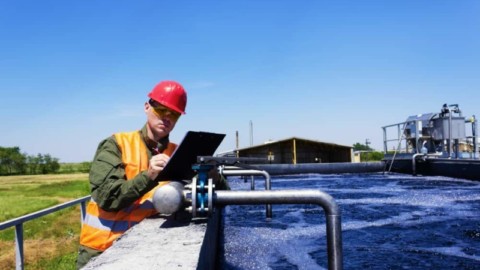Canberra’s wastewater system is being clogged with masses of disposable wet wipes as residents supplement their traditional toilet paper supplies with a more lavish toilet experience.
ACTEW Water spokeswoman Angie Drake warned that network and infrastructure were at risk of continual clogging if customers did not change their ways.
“It was reported over the weekend that Sydney was experiencing its own ‘personal wipe’ endemic with major clogging occurring across the sewerage network due to personal and cleaning wipes which claim to be flushable,” Ms Drake said.
“We are experiencing our own problems here in Canberra, caused by much the same issue, just on a smaller scale.”
“Instead of disintegrating after flushing – like toilet paper does—the synthetic body wipes are not breaking down, and this is contributing to an average of one pump blockage occurring every three days.”
“This poses a significant cost to the Canberra community – and across the developed world—and one that is preventable if we do the right thing.”
“Flushing any kind of wipes down the toilet or drain can seriously impact our sewerage network, and have very serious impacts on the environment.”
“There are some things that we can do as a utility, such as replace our infrastructure progressively with non-clog pumps, but this takes time, and comes at considerable cost.”
“Over coming weeks and months, ACTEW Water plans on targeting some of the hotspots to educate the community about what these types of items are doing to our system, and potentially to our environment.”
“The message is relatively simple for the community – only human waste and toilet paper should be flushed.”
“The issue is not exclusive to the Canberra region, with one million kilograms of wet wipes reportedly being removed from Sydney sewers over the last two years, a trend which is costing Sydney Water millions of dollars to remove,” she said.
“It’s important to remember that even though some wipes are advertised as “flushable”, they are certainly not welcome in our network.”
Further information about correct domestic sewage management is available on the ACTEW website.
Facts about our pipes and wipes
Between July 2011 and July 2014, ACTEW averaged one blockage at one of their 26 sewer pump stations every 3.25 days (or 4 every 13 days). Blockages usually occur in the pump itself but can also occur in the non-return valves.
Sewer pumps typically block with fibrous materials, often in the form of cloths or feminine hygiene products. They become entangled in the pump and often agglomerate, increasing resistance to fluid flow.
Eventually, the pump cannot move the fluid and will often shut itself down as a self-protection mechanism.
Each time a pump is unblocked, workers are exposed to risk of falls (deep wet wells typically between 4 and 6 metres), excess manual handling, and biological hazards such as working with sewage.
The public in these areas may also be unnecessarily exposed to nuisance odours.
ACTEW Water, along with many other water utilities is now either purchasing or actively investigating pumps that are more resistant to becoming clogged with fibrous material. Due to the expense and planning involved, it could take decades to roll out these new technologies across the entire network.
















